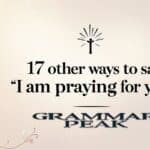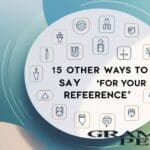Language Device
Language Device explores the tools and techniques that make language expressive and impactful. From literary devices like metaphors and alliteration to rhetorical strategies, this category breaks down how these elements enhance communication, storytelling, and persuasion. Perfect for writers, students, and language enthusiasts!
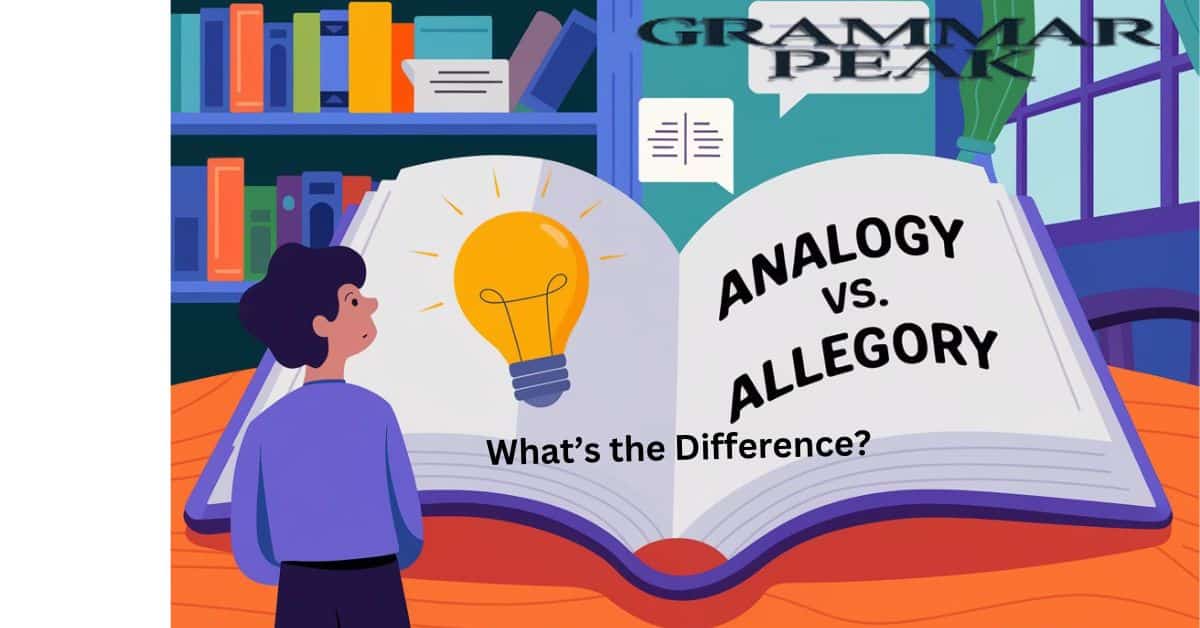
Analogy vs Allegory: What’s the Difference?
understanding the difference between Analogy vs Allegory can help you communicate more clearly. Both of these literary devices are widely ...
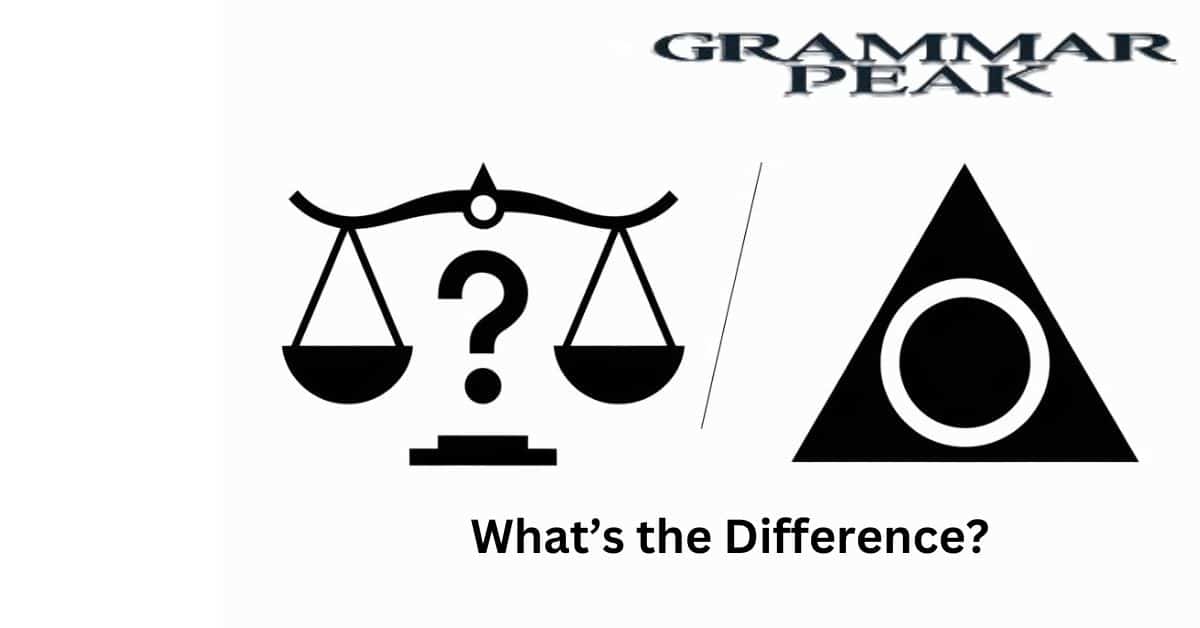
Juxtaposition vs Paradox: What’s the Difference?
When it comes to juxtaposition vs paradox, these two terms often get mixed up. Though both play vital roles in ...
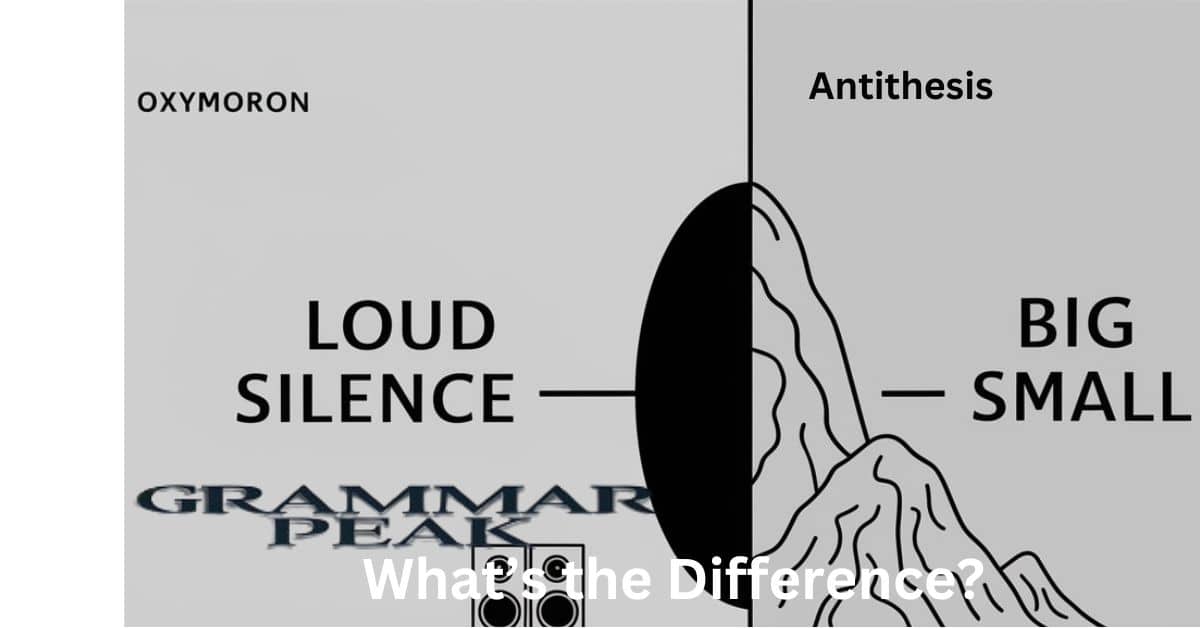
Oxymoron vs Antithesis: What’s the Difference?
Understanding the difference between Oxymoron vs Antithesis can enhance your writing skills. Both are rhetorical devices that play with language ...
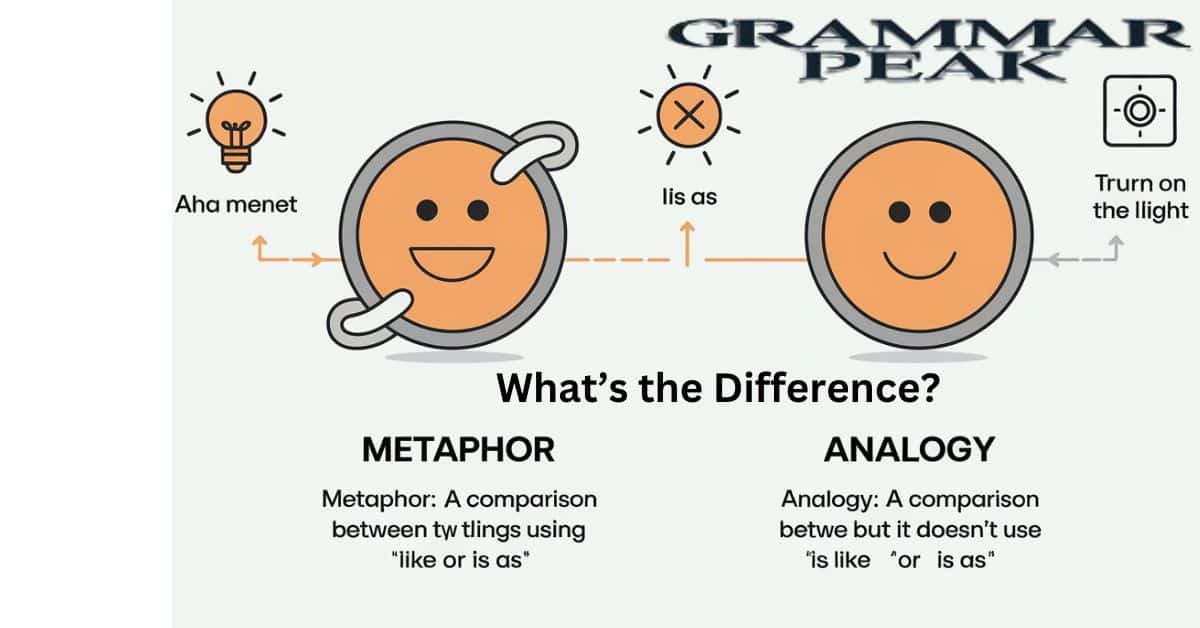
Metaphor vs Analogy: What’s the Difference?
Understanding the difference between metaphor vs analogy is essential for effective writing and communication. Both are powerful figures of speech ...
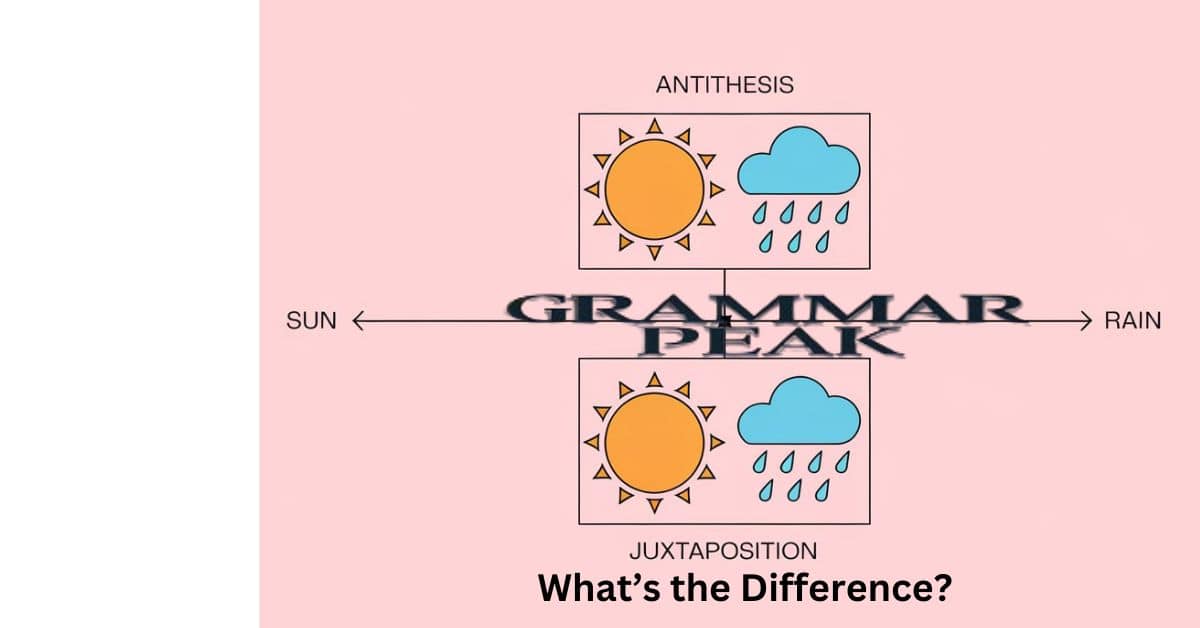
Antithesis vs Juxtaposition: What’s the Difference?
Understanding antithesis and juxtaposition is vital for anyone interested in writing. These are powerful literary techniques that help convey ideas ...
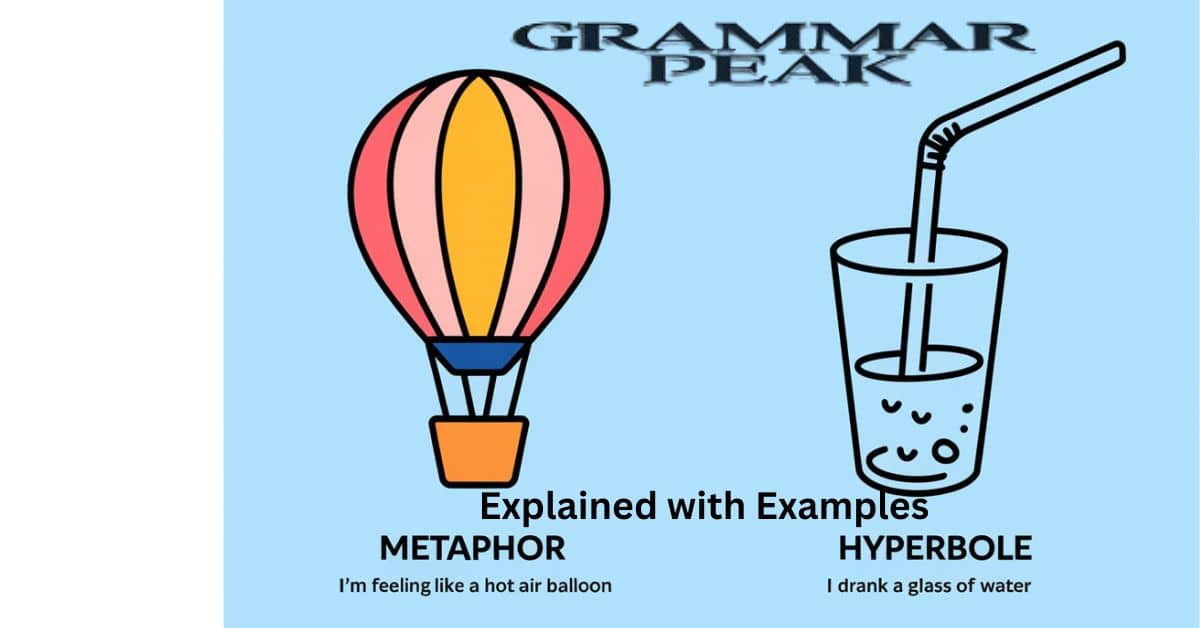
Metaphor vs Hyperbole: Explained with Examples
Language is a powerful tool that shapes our thoughts and interactions. Metaphors and hyperboles are two figures of speech that ...



